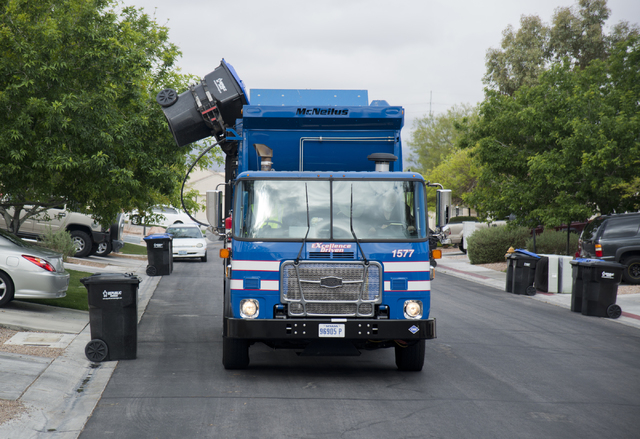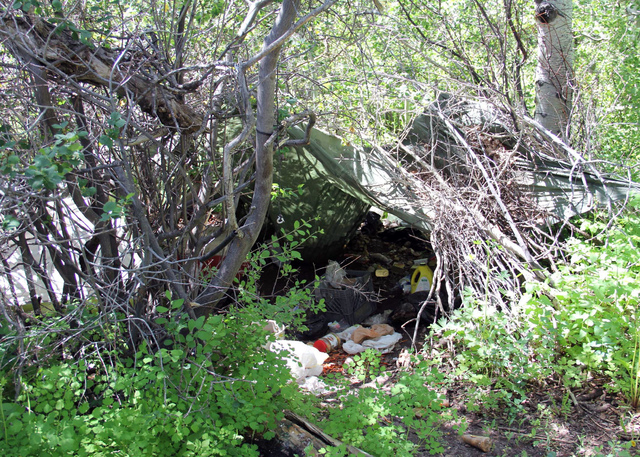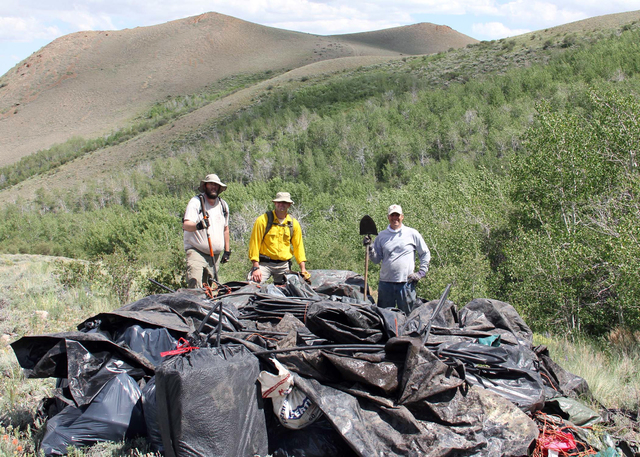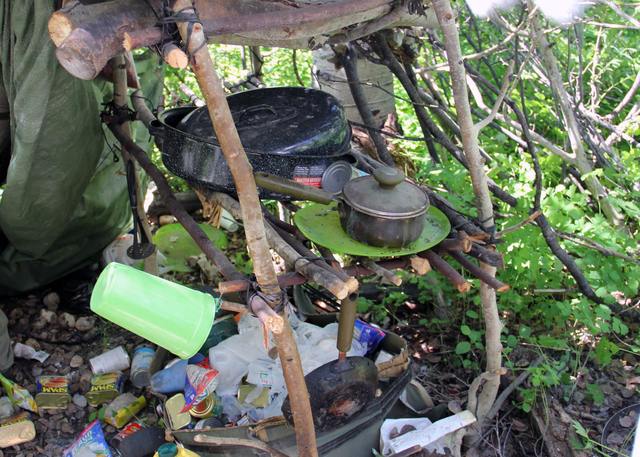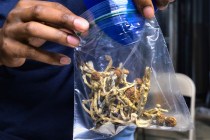Pot farm raid leads to costly cleanup
RENO — Nabbing the bad guys was only part of the challenge facing federal officials who shut down an illegal marijuana garden where nearly 2,000 pot plants sprouted up from U.S. rangeland in remote wilderness in northeast Nevada’s Snake Mountains.
The drug-trafficking suspects who remained in federal custody Monday left behind a makeshift campground filled with garbage and caused an estimated $60,000 worth of damage to an aspen grove about 50 miles west of the Utah line, Bureau of Land Management officials said.
Last week, four volunteers from the federal agency restored the area by gathering up more than 700 pounds of trash and debris from one of the camouflaged encampments, which increasingly are popping up on public lands in the West.
“We’re cleaning up the site to prevent future use for illegal activities, restore ecological habitat and return it to a more natural state so wildlife can use this great grove for its intended purpose,” said Blaine Potts, outdoor recreation planner in the BLM’s office in Wells, about 60 miles west of Utah line.
Hunters stumbled onto the elaborate operation in October, featuring cooking supplies, water catchments and irrigation systems stretching over roughly 6 acres, Potts said.
The volunteers spent 12 hours rounding up the garbage along with the black irrigation tubing, overhead wires strung between aspen trees and other equipment. On Thursday, a BLM helicopter crew airlifted the refuse out of the camp in a creek drainage near Stormy Peak, part of the mountain range about 350 miles northeast of Reno.
Potts said people who stumble across grow sites with similarly elaborate systems should not approach because “these guys are very dangerous.” He said recreationists who happen upon suspected illegal activity should note the location, GPS if possible, and report it immediately to local law enforcement.
Six suspects fled when U.S. Drug Enforcement Administration agents joined federal, state and local authorities descending on the mountain camp Oct. 16, 2013, the day after hunters reported the operation. Two were arrested later that day hiding in the area, including one who had covered himself in leaves and brush about 400 yards from the pot garden, court records state.
A federal grand jury in Reno returned a four-count indictment in November accusing Arnoldo Diaz-Cardenas and Enrique Juarez-Monroy of drug trafficking and illegal possession of a firearm.
Diaz-Cardenas pleaded not guilty Dec. 2 and was scheduled to go to trial Aug. 12 in U.S. District Court in Reno, Justice Department spokeswoman Natalie Collins said Monday. Juarez-Monroy, who also went by Luis Emiliano Monroy-Garcia, pleaded guilty June 9 and was scheduled to be sentenced Sept. 15 as part of a plea agreement.
In addition to recovering 1,949 pot plants, authorities seized 234 pounds of processed marijuana and a .22-caliber rifle.
Juarez-Monroy waived his Miranda rights and told investigators he’d been living there for about six days and was being paid $150 a day to help tend to the plants, according to an Oct. 22 affidavit from BLM special agent Lisa Wilson. She said he told investigators “his job was to separate the bud from the marijuana, but he wasn’t any good at it.”
Nationwide, agents seized 12,355 pounds of processed marijuana and 195,417 marijuana plants from BLM lands in fiscal year 2013. The U.S. Forest Service also has seen an increase in pot-growing operations in national forests in recent years, especially in California.



